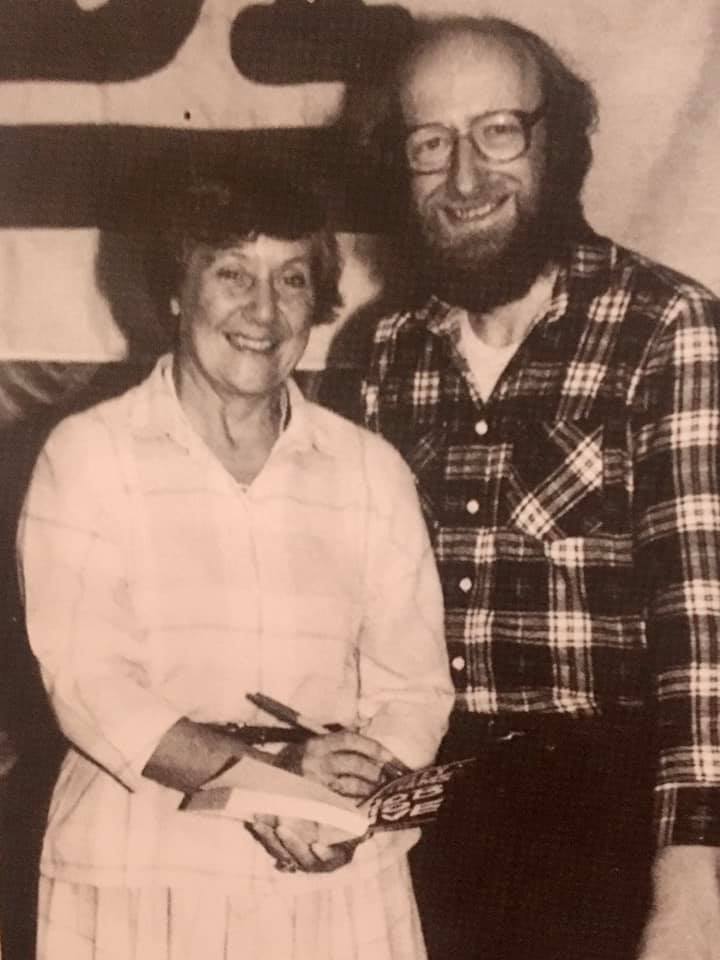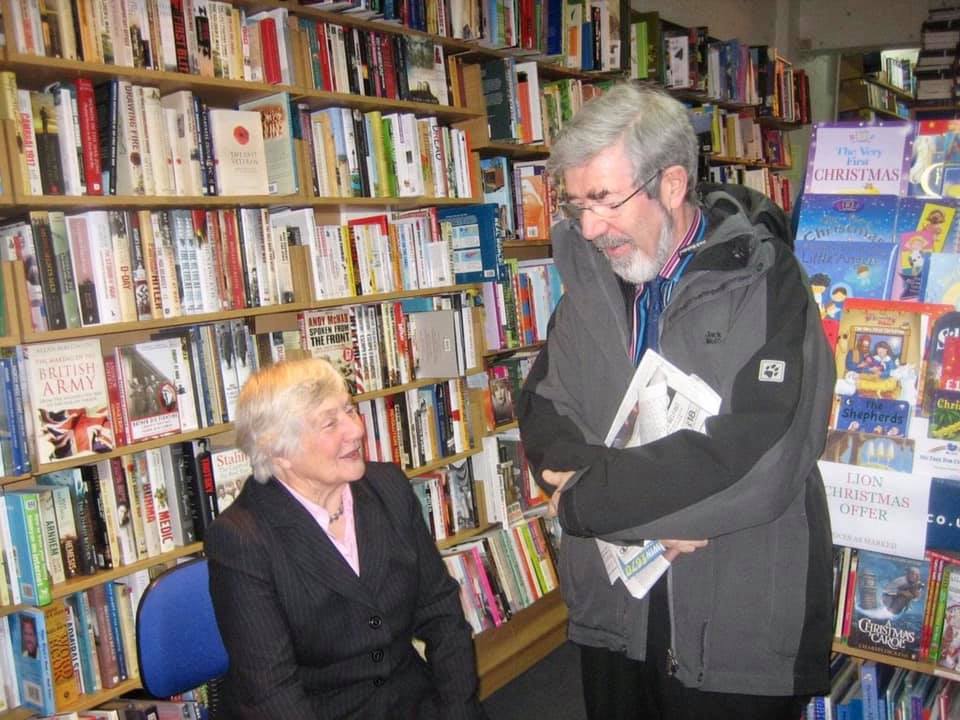So, I may write a series of tributes. This one is about Shirley Williams July 1930 – 12 April 2021
Shirley Williams was a national treasure, the greatest treasure that the Liberal Democrats had. She was a genuine friend and supporter of good people, and good causes, across many countries and political divides.

Almost everyone speaking and writing about Shirley Williams says that there is just too much they want to describe. So, I may write a series of tributes. This one is about Shirley Williams, Crosby, and the Alliance (1981 – 1988). Shirley Williams was a national treasure, the greatest treasure that the Liberal Democrats had. She was a genuine friend and supporter of good people, and good causes, across many countries and political divides.
Just before 7 am on the morning of November 26th, 1981, I knocked on the door of a house opposite a polling station in Maghull, near Crosby. I was a Young Liberal, aged 21, and election campaigning was far more important to me than my lectures at the University of Liverpool. For the last few weeks, I had been helping to organise the third largest town in the Crosby constituency during the famous by-election campaign.
I was put in charge of running a committee room on polling day by Shirley’s brilliant by-election organiser Alec McGivan. I was relieved when I had finished helping with the early morning delivery to arrive at the house to see that the lights were on. The people were obviously up and ready for me after being out late the night before. This had meant that I hadn’t been able to meet them then.
When the door opened, I said that I had come to run the committee room for Shirley Williams. But they looked at me very oddly, said that ‘they were voting for her’, knew nothing about a committee room that day. I assumed a cock up by the newly formed SDP and I quickly began persuading them to let me take over their house until 10 pm that night.
It was because of Shirley that they readily agreed to let me use their house and phone for the day. But then we all realised that the road was actually a continuation of two different roads, and I was at the right number, but in the wrong road. It was my cock up!
The enthusiasm for Shirley’s campaign to become the SDP’s first elected MP fired up the spirits of everyone involved. It opened the minds of Crosby’s previously very Conservative electorate and a 19,272 majority was transformed to a 5,289 majority for Shirley. Over 500 of us were singing “Shirl the Pearl” in the Marine Football Club bar well into the night. The “Alliance”, which Shirley had helped to launch a few months earlier rose to over 50% in the national opinion polls.
We are losing many of the giants whose shoulders we have stood on and who enabled us to do all that we have done.
The most emotional rally that I was ever to attend had taken place just two months earlier at the Llandudno Liberal Assembly. It took place on the eve of a vote by the Liberal Party to endorse the concept of an Alliance with the SDP, something which David Steel, working closely with Shirley and Roy Jenkins, had striven to bring about.
Roy spoke first to the hall packed with over a thousand of us and a standing ovation followed his remarks. Then Shirley spoke, and made our hairs stand on end, as she was capable of doing more than any politician I have ever known. I still recall the exact intonation of the words in her peroration as she spoke of “bringing hope to our battered and unhappy world”. Another standing ovation followed, and then when Jo Grimond stood up, another one preceded his first words. The re-alignment that Jo had sought in the 1960s was now coming about.

It had taken great courage for Shirley to leave Labour. She should have become the first Leader of the SDP, but she told me that her personal circumstances just then did not make it an opportune time. I think that she knew the greatness of Roy Jenkins, but also that he lacked the popular appeal that was needed for the Alliance to succeed in the 1980s. Perhaps she had too many unjustified personal doubts about her own capacity. She had avoided the prospect of a second parliamentary defeat in two years by letting Roy contest the Warrington by-election in July 1981. But when Roy came close, she and her allies made sure that her claim to fight Crosby was made quickly before Roy could fight a second by-election in the same year. A rare mistake in my view was her backing David Owen to be the first Leader of the SDP when the “gang of four” of which she had been the most popular member came to an end.
My own early enthusiasm for the “Alliance” and eventually the merger of the Liberal Party and the SDP came from my experiences of seeing shared values and effective working. The Liberal Party had great campaigning skills, but it lacked resources which the SDP provided for some years through the financial backing of David Sainsbury amongst others.
The merger, however, had to be achieved over David Owen’s dead body and the battle within the SDP may not have been won without Shirley and the determined organisation of Alec McGivan, and others, who left his post in the party to work with her as the SDP President on the “Yes to Unity” campaign.
Shirley, a great political hero
Shirley helped to give the Liberal Democrats hope for the future, but it was a much harder launch for the merged party in 1988, than it had been for the new SDP in 1981. In the committee planning the launch of the merged party, we were told that its slogan would be “The New Choice – The Best Future”. Richard Holme said that this slogan would last a decade. But Shirley agreed with me that “new” was not going to work this time if we had to see off opposition from David Owen’s “continuing SDP”. We lost the argument, but the slogan was dropped within weeks.
Paddy Ashdown warned that the merged party might die in its first few years. But when it was eventually to make its own breakthroughs, with a far greater numbers of elected representatives than at the peaks of success for the Alliance, Shirley was at the forefront of it. “Shirl the Whirl” was almost ever present until very recently, and the great affection for her is very widespread.